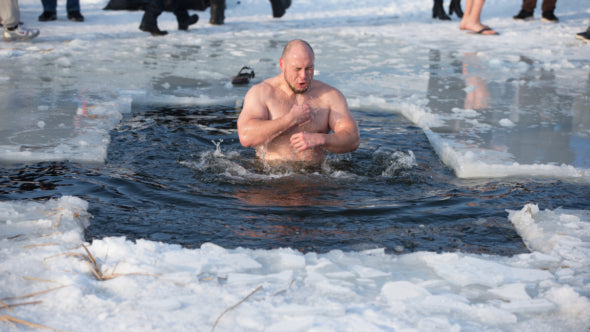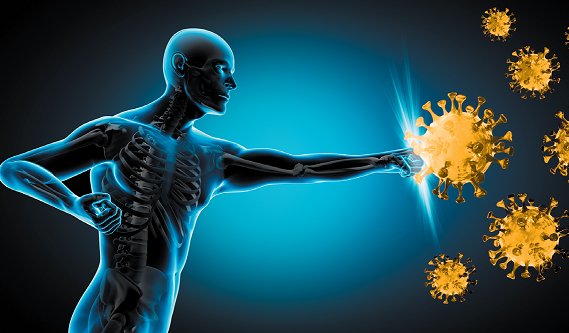Unlocking Success: Essential Tips for Optimal Athletic Recovery

In the journey of athletic excellence, the path to success isn't just paved with training intensity and competition; it's also intricately linked to the crucial process of athletic recovery.
Understanding how to effectively recuperate can not only enhance your performance but also safeguard your long-term health.
This article delves into the essential aspects of athletic recovery, exploring its significance, the science behind the healing process, and offering actionable strategies to optimize your recovery routine.
Whether you're a seasoned athlete or a wellness seeker, the insights provided here will inspire you to prioritize recovery in your pursuit of excellence.
View Our Luxury Cold Therapy Products 
Key Takeaways
- Athletic recovery is crucial for both physical health and performance enhancement.
- Understanding the science behind how your body heals can optimize your recovery process.
- Nutrition, hydration, and sleep are foundational elements for effective athletic recovery.
- Incorporating physical recovery techniques like stretching and massage can significantly improve muscle recovery.
- Mental recovery practices such as mindfulness can enhance overall well-being and performance.
Understanding Athletic Recovery: What It Means and Why It Matters
Understanding athletic recovery is a fundamental pillar in optimizing athletic performance and enhancing overall well-being.
Recovery transcends mere rest; it is a complex physiological process where the body heals and regenerates from the stress imposed by training.
The science behind recovery reveals that, after intense physical exertion, the body undergoes a myriad of processes aimed at repairing muscle fibers, replenishing energy stores, and balancing hydration levels, which are essential for sustaining peak physical condition.
Key strategies for effective recovery include a balanced approach to nutrition, ensuring adequate hydration, and prioritizing restorative sleep, all of which provide the necessary nutrients and rest needed for muscle regeneration and energy restoration.
Moreover, incorporating physical recovery techniques such as stretching, massage, and active recovery sessions can aid in alleviating muscle tension while promoting blood flow to essential areas, further facilitating recovery.
Beyond the physical, mental recovery plays a significant role in an athlete's regimen.
Integrating mindfulness and relaxation techniques can enhance mental clarity, reduce stress, and improve focus, ultimately leading to a more holistic approach to recovery.
To truly maximize the benefits of recovery, creating a personalized recovery plan that tailors these strategies to individual needs is essential for each athlete and wellness seeker, ensuring not only peak performance but also long-term health and longevity in their athletic pursuits.
The Science Behind Recovery: How Your Body Heals and Regenerates
Athletic recovery is an essential component of any training regimen, transcending mere rest to embrace a holistic approach towards rejuvenation and performance enhancement.
Understanding the intricate science behind recovery sheds light on how the body diligently heals and regenerates after strenuous activity, allowing athletes to optimize their potential.
Strategies for effective recovery begin with proper nutrition, where nutrient timing and quality can significantly influence muscle repair and energy restoration.
Equally important, hydration plays a critical role in maintaining performance levels and mitigating the risks of injury.
Physical recovery techniques, such as targeted stretching, therapeutic massage, and active recovery exercises, are vital for reducing muscle soreness and improving flexibility.
Yet, recovery is not solely a physical endeavor—mental recovery through mindfulness and relaxation techniques is crucial in enhancing focus, reducing stress, and promoting overall well-being.
To truly unlock the benefits of athletic recovery, athletes and wellness seekers must create a personalized recovery plan that aligns with their unique needs and goals, ensuring a balanced approach that embraces both body and mind for sustained peak performance.
'Success is where preparation and opportunity meet.' - Bobby UnserView Our Luxury Cold Therapy Products

Key Strategies for Effective Recovery: Nutrition, Hydration, and Sleep
Achieving optimal athletic recovery is not merely a passive process; it requires a strategic approach that intertwines nutrition, hydration, and sleep into a holistic regimen.
Nutrition acts as the foundation of recovery, where athletes should focus on consuming a balanced diet rich in protein, complex carbohydrates, and essential fats to repair muscle tissue, replenish glycogen stores, and reduce inflammation.
Hydration is equally significant, as it aids in maintaining bodily functions and optimizing performance; athletes should prioritize fluids both during and after workouts, exploring electrolytic beverages when engaging in prolonged physical activities.
Sleep, often underestimated, is crucial for recovery, allowing the body to repair and rejuvenate—aim for 7-9 hours of quality sleep and consider sleep-enhancing techniques such as a relaxing bedtime routine and minimizing screen time.
By consciously integrating these key strategies, athletes can not only enhance their recovery process but also elevate their overall performance, fostering an unstoppable drive towards peak physical condition.
Physical Recovery Techniques: Stretching, Massage, and Active Recovery
Athletic recovery is an essential aspect of any training regimen, as it significantly influences performance and overall well-being.
Implementing effective physical recovery techniques such as stretching, massage, and active recovery can transform not only how athletes feel after intense workouts but also their long-term success in achieving their fitness goals.
Stretching improves flexibility and reduces muscle tension, paving the way for better movement patterns and reduced risk of injury.
Incorporating regular massage therapy helps alleviate soreness and stress while enhancing circulation, allowing athletes to recover more quickly and effectively.
Meanwhile, embracing active recovery—engaging in low-intensity physical activity such as walking or swimming—can promote blood flow and nutrient delivery to muscles, accelerating the recovery process.
By prioritizing these techniques, athletes and wellness seekers alike can unlock their full potential, harness the power of rejuvenation, and maintain the drive to push their limits further.

Mental Recovery: The Importance of Mindfulness and Relaxation Techniques
Athletic recovery is not solely confined to the physical realm; in fact, mental recovery plays an equally crucial role in enhancing performance and overall well-being.
Practices such as mindfulness and relaxation techniques are essential for athletes, as they allow the mind to rejuvenate, mitigate stress, and foster a heightened state of focus.
Engaging in mindfulness can help athletes develop greater self-awareness, enabling them to recognize and manage their emotional responses to both triumphs and setbacks.
Meanwhile, incorporating relaxation methods—such as deep-breathing exercises, yoga, or guided visualization—into a recovery routine can significantly reduce anxiety, increase resilience, and promote a state of calm that is vital for optimal performance.
Ultimately, by prioritizing mental recovery through these techniques, athletes not only enhance their physical capabilities but also cultivate a stronger, more balanced mindset that paves the way for sustained success and personal growth.
Creating a Personalized Recovery Plan: Tailoring Strategies to Your Needs
Creating a personalized recovery plan is essential for any athlete or wellness seeker looking to optimize their athletic recovery and enhance performance.
It goes beyond generic advice and considers individual needs, goals, and body responses.
Start by assessing your unique physical condition, including injury history, training intensity, and overall health.
Incorporate a combination of active recovery techniques, like yoga or light aerobic exercises, and passive strategies, such as proper sleep hygiene and nutrition, to give your body the time it needs to heal and recharge.
Don't forget the importance of mental recovery; mindfulness practices and meditation can enhance focus and reduce anxiety, complementing physical recovery efforts.
As you tailor your plan to your preferences, remember to track your progress and make adjustments based on what works best for you.
Embrace this customized approach, as it empowers you to take control of your recovery journey, ensuring that you not only bounce back stronger but also inspire others on their quest for peak health and performance.
Frequently Asked Questions
What is athletic recovery and why is it important?
Athletic recovery refers to the processes that help your body repair and rejuvenate after physical exertion.
It is crucial for reducing muscle soreness, preventing injury, and improving performance by allowing the body to adapt to training stress.
What are the key components of an effective recovery strategy?
An effective recovery strategy includes proper nutrition, hydration, sufficient sleep, physical recovery techniques like stretching and massage, and mental recovery practices such as mindfulness and relaxation.
How does nutrition play a role in athletic recovery?
Nutrition is essential for replenishing energy stores, repairing damaged muscles, and reducing inflammation.
Consuming a balanced diet rich in proteins, carbohydrates, and healthy fats aids in recovery and enhances performance.
What techniques can I use for physical recovery?
Physical recovery techniques include stretching, foam rolling, massage, and active recovery exercises that involve low-intensity movement to promote blood flow and muscle relaxation.
How can I create a personalized recovery plan?
Creating a personalized recovery plan involves assessing your individual needs, training intensity, and lifestyle factors.
You should include specific strategies for nutrition, hydration, sleep, and both physical and mental recovery that align with your goals.




